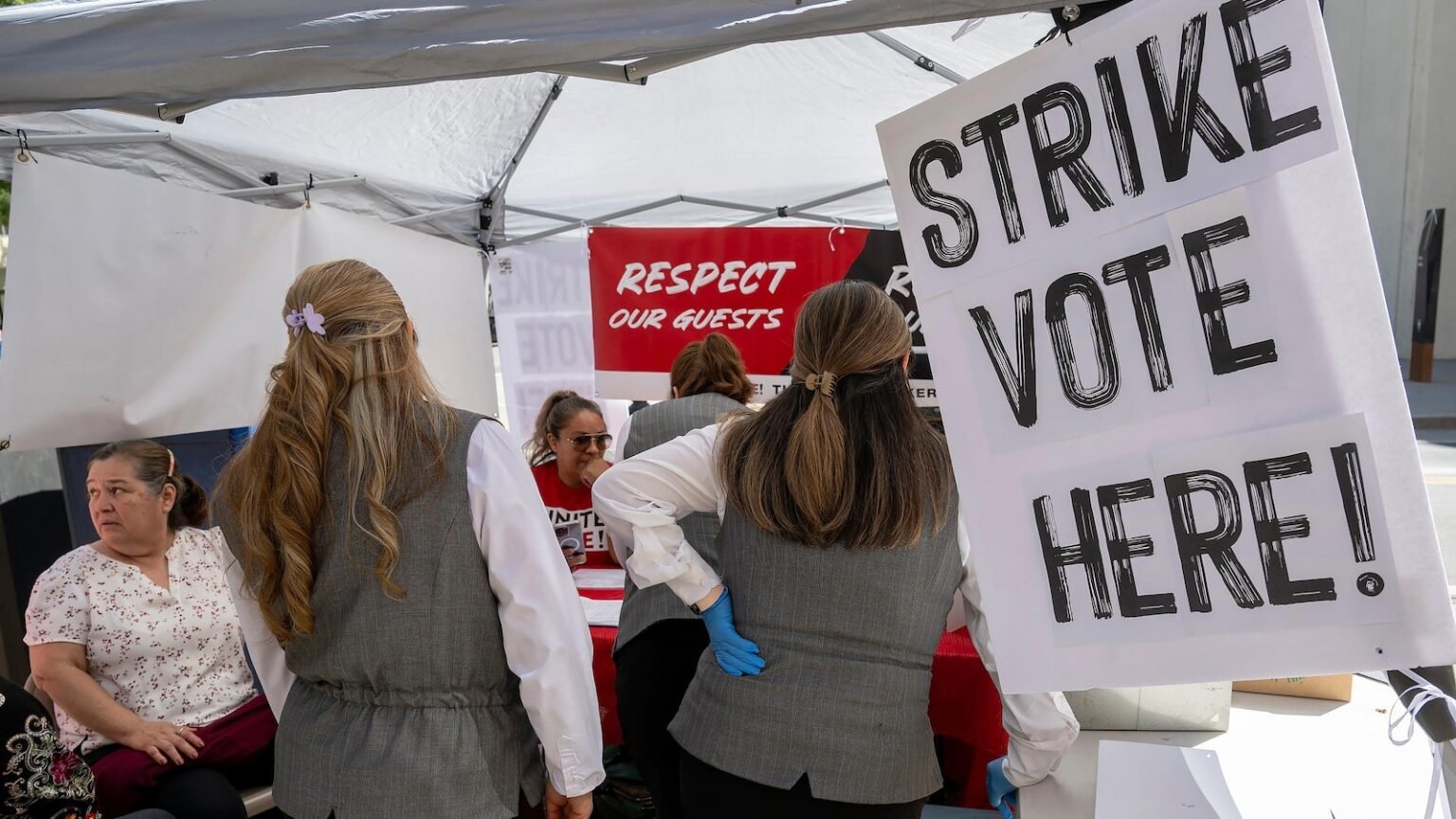LOS ANGELES — Voters will decide in November whether to raise California’s minimum hourly wage by 2026 and pay workers the highest statewide minimum wage in the country.
That would be on par with Hawaii, where workers are on track to be paid at least $18 an hour by 2028 under a law passed two years ago.
Five states — including Alabama, South Carolina and Tennessee — have no minimum wage, although they are subject to the federal minimum wage of $7.25 an hour.
California’s ballot measure, Proposition 32, would raise the state’s current minimum wage from $16 to $17 an hour in 2024 for employers with at least 26 employees, rising to $18 an hour starting in January 2025. Without it, the state minimum wage will be imposed. to increase to $16.50 an hour next year.
Small businesses with fewer than 26 employees would have to start paying workers $17 an hour in January 2025 and $18 an hour in 2026.
Supporters of the measure say it will help low-wage workers support their families in one of the most expensive states in the country. Joe Sanberg, a wealthy investor and anti-poverty advocate, said the increase would give more than 2 million Californians who earn the minimum wage a $3,000 a year raise.
He called the current situation in California “corporate welfare,” because full-time minimum wage workers are not earning enough to survive without government assistance.
“If someone who is working full-time needs food stamps, doesn’t that mean we as taxpayers are subsidizing the difference between what their employer has to pay them so they can afford food and what they’re actually paying?” Sanberg said.
Opponents of the California measure say it would be difficult for businesses to implement, especially small employers with thin profit margins. They say the cost would be passed on to consumers and could lead to job losses.
“This increase and the magnitude of the rate increase will have a significant impact on them and their ability to maintain business operations,” said Jennifer Barrera, president of the California Chamber of Commerce.
Nearly 40 California cities — including San Francisco, Berkeley and Emeryville in northern California — already have higher state minimum wages. Since July, workers in Los Angeles have been paid a minimum wage of $17.28 an hour.
West Hollywood has a minimum wage of $19.08 an hour, but employers there aren’t happy either. A survey of 142 businesses mandated by the city found that 42% of them said they had to lay off workers or reduce hours because of the ordinance.
Fast-food workers across the state received a $20-an-hour raise in April under legislation signed by Gov. Gavin Newsom. Democrats also passed legislation to raise wages for health care workers to $25 an hour by July 2026.
Fast food prices rose 3.7 percent after the law went into effect, while employment remained relatively stable, according to a University of California, Berkeley labor paper. But franchises in Southern California He reported that he had to cut his hours due to the salary increase for the workers.
Ioana Marinescu, a professor at the University of Pennsylvania who studies the labor market and wage determination, said raising the minimum wage has not shown any net effect on the overall employment rate.
“Some are positive, others are negative, but on average the impact on employment is close to zero and this is quite consistent in many studies,” said Marinescu.
Another common argument against raising the minimum wage is that these low-paying jobs are often filled by students or young workers who are used as stepping stones to higher-paying jobs.
But a report by the California Legislative Analyst’s Office found that roughly half of low-wage workers were over 35 and a quarter over 50. The top low-wage occupation in the state is home health and personal care aides, accounting for more than half. among low-wage workers are Latinos.
Small businesses are already struggling with inflation affecting their bottom line, said Juliette Kunin, who owns a Sacramento gift shop called Garden of Enchantment. The company employs about six workers.
“I don’t want to see anyone unable to support themselves and work full-time,” said Kunin, who has mixed feelings about the measure. “But, yes, if they don’t pull out the pencil, then we won’t be able to survive.”
Workers picketed outside the Sheraton Grand Sacramento hotel this week to demand higher pay and better benefits. In the US, this year, thousands of hotel workers have done it they went on strike to fight for fair wages and workloads Restrictions during COVID.
Christian Medina earns $16 an hour as a banquet captain at the Sheraton Grand in addition to tips. He supports the proposal and hopes it will help workers better provide for their families.
“It’s hard to pay $16 an hour,” he said. “I want to be able to save money for my daughter so she can go to school, go to a good university.”
Some say that even if the measure is passed, it would not go far enough.
Carmen Riestra, a uniformed hotel worker who earns $19 an hour, said the $18 minimum wage won’t be enough to live in Sacramento.
Riestra loves her job and has worked at the Sheraton Grand for 11 years, but in recent years the workload has increased due to job cuts, she said.
“And the payment is only $19?” he said “That’s not fair.”
___
Austin reported from Sacramento, California. He is a member of the Associated Press/Report for America Statehouse News Initiative. Report for the Americas It is a national non-profit service program that places journalists in local newsrooms to report on the issues they cover. Follow Austin on Twitter: @ sophieadanna

